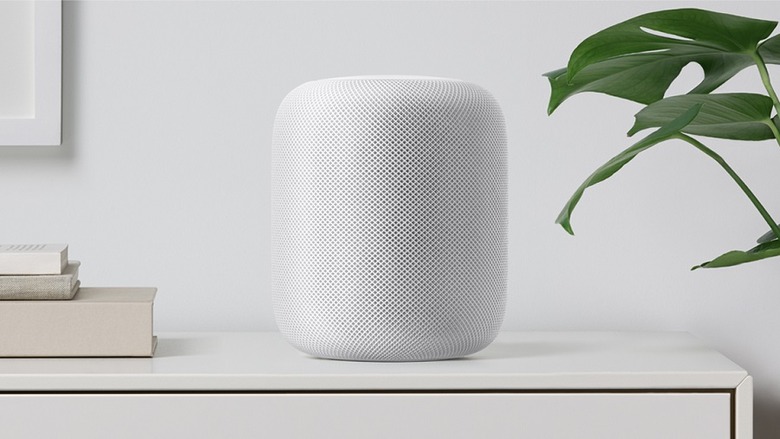Apple's HomePod Is Off To A Slow And Disappointing Start, Which Surprises No One
After a multi-month delay, Apple's HomePod finally hit store shelves in early February to generally rave reviews. It's worth noting that Apple, in the weeks and months preceding the HomePod release, made a point of noting that its main objective with the device was to release a smart speaker with unrivaled acoustic performance.
"We think one thing that was missing from this market was a quality audio experience, a very immersive audio experience," Apple CEO Tim Cook said earlier this year. "Music deserves that kind of quality as opposed to some kind of squeaky sound."
With that said, reviews of the HomePod's sound quality have been overwhelmingly positive, with even audiophiles conceding that the device delivers incredible sound, a feat made all the more impressive given the speaker's relatively small footprint.
But still, a premium acoustic experience seemingly hasn't spurred a spike in sales for Apple's astonishingly powerful smart speaker. Citing data from component suppliers and a market research firm, Bloomberg reports that consumers simply aren't buying the HomePod and that Apple has been forced to cut orders.
By late March, Apple had lowered sales forecasts and cut some orders with Inventec Corp., one of the manufacturers that builds the HomePod for Apple, according to a person familiar with the matter.
...
Three weeks after the launch, weekly HomePod sales slipped to about 4 percent of the smart speaker category on average, the market research firm says. Inventory is piling up, according to Apple store workers, who say some locations are selling fewer than 10 HomePods a day. Apple declined to comment.
Not helping matters is that the HomePod — due to ongoing delays — wasn't available for purchase during last year's holiday shopping season where smart speakers proved to be incredibly popular with consumers.
Disappointing HomePod sales, though, can more likely be attributed to two factors. For starters, the HomePod — with its $349 sticker price — is far more expensive than both the Amazon Echo and Google Home. Second, and equally as important, is that Siri on the HomePod provides users with a stunted and somewhat frustrating user experience, especially when compared to what users can accomplish on competing devices.
Tepid HomePod sales suggest that consumers simply don't care about a premium acoustic experience, or at the very least, are unwilling to pay nearly four times as much for a great sounding speaker that can carry out fewer tasks than rival devices.
Looking ahead, HomePod sales might eventually see a significant spike amid reports that Apple might release a $150 HomePod later this year. Of course, if HomePod sales remain lukewarm with a more wallet-friendly option available, it will become abundantly clear that the key to success in the smart speaker market isn't a top of the line acoustic experience, but rather, a top of the line intelligent assistant.
